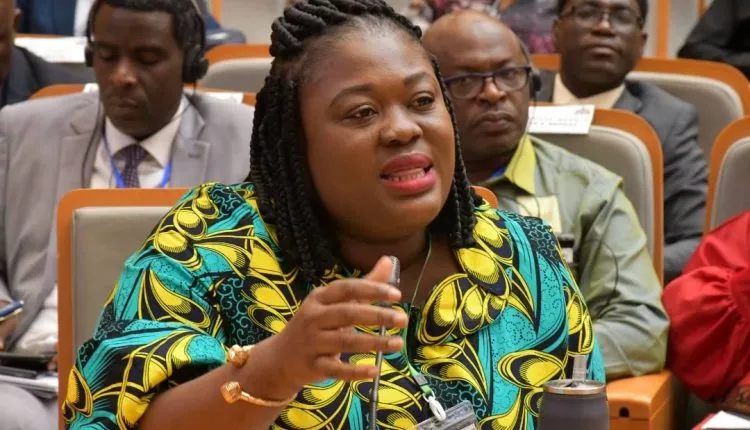Paragraph 1: The suspension of Chief Justice Gertrude Araba Sackey Torkornoo has ignited a heated debate in Ghana, centering on the interpretation of Article 146 of the 1992 Constitution and the process for removing a Chief Justice. Former Deputy Attorney-General, Diana Asonaba Dapaah, argues that the petitions leading to the suspension lacked the substantial evidence required to establish a prima facie case. She contends that the allegations, particularly those concerning the Chief Justice’s recommendation on Supreme Court expansion and participation in panel decisions, do not constitute misconduct. These actions, she explains, are within the Chief Justice’s constitutional purview and do not warrant removal.
Paragraph 2: Dapaah emphasizes the potential dangers of lowering the bar for removing a Chief Justice based on unsubstantiated claims, warning that this could undermine judicial independence and democratic governance. She stresses the need to adhere to due process and safeguard the integrity of the judiciary. This stance contrasts sharply with the actions of President John Dramani Mahama, who initiated the suspension after consulting with the Council of State, citing a prima facie case based on the petitions. A five-member committee has been formed to investigate the allegations, but concerns remain about the legitimacy of the process.
Paragraph 3: Inusah Fuseini, former Ranking Member on the Constitutional, Legal, and Parliamentary Affairs Committee of Parliament, supports the need to uphold the procedures outlined in Article 146. He emphasizes the importance of respecting the constitutional limitations on presidential power, particularly the requirement for consultation with the Council of State before a prima facie determination is made. Fuseini argues that the Chief Justice cannot objectively assess allegations against herself, highlighting the necessity of relying on established constitutional mechanisms to ensure fairness and accountability while safeguarding judicial independence.
Paragraph 4: The debate also draws in perspectives on the broader implications for Ghana’s democratic framework. Professor Baffour Agyeman-Duah, former United Nations Senior Governance Advisor, underscores the crucial need to protect the separation of powers and judicial independence. He acknowledges the right of citizens to petition but cautions against actions that could create harmful precedents, potentially destabilizing democratic governance. Agyeman-Duah advocates for strict adherence to constitutional provisions to maintain the integrity of the process and public trust in institutions.
Paragraph 5: Oliver Barker-Vormawor, Constitutional Rights and Policy Strategy Advisor at Democracy Hub, introduces another layer to the discussion by arguing against outright dismissal of petitions alleging judicial incompetence. He maintains that such allegations, if substantiated, could constitute grounds for removal under Article 146. Barker-Vormawor suggests that any filtering process for these petitions must be fair, objective, and transparent. While acknowledging the President’s ultimate responsibility in determining a prima facie case, he cautions against politicizing the process, emphasizing its importance for protecting the judiciary and strengthening democracy.
Paragraph 6: Adding to the complexity of the situation, the New Patriotic Party (NPP) and four other political parties have condemned the suspension as “absurd and unconstitutional,” framing it as an attack on the judiciary. They have announced plans for nationwide demonstrations to protest the suspension and defend what they see as the constitutional order and judicial independence. This political mobilization highlights the polarizing nature of the issue and underscores the significant implications for the future of judicial processes and the balance of power within Ghana’s democratic system. The contrasting viewpoints and actions taken by various actors demonstrate the delicate balance required to uphold constitutional principles, ensure accountability, and maintain public trust in the judiciary.














